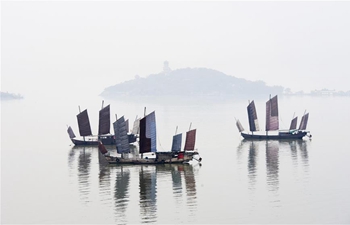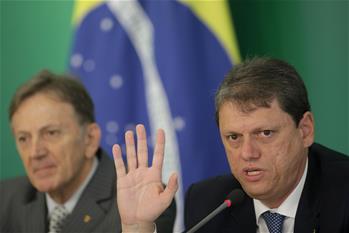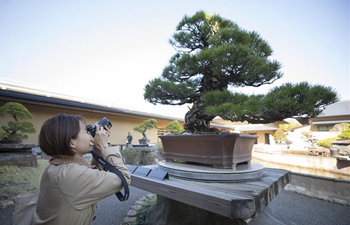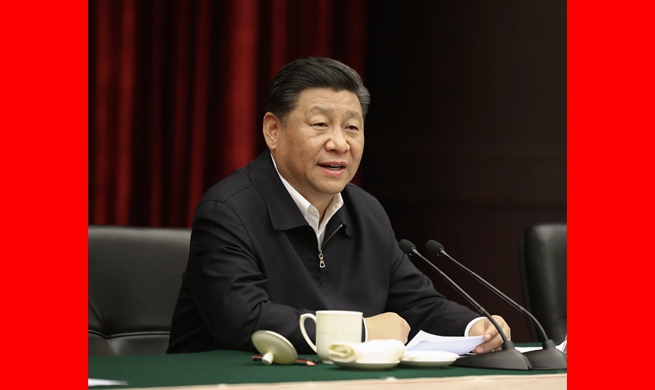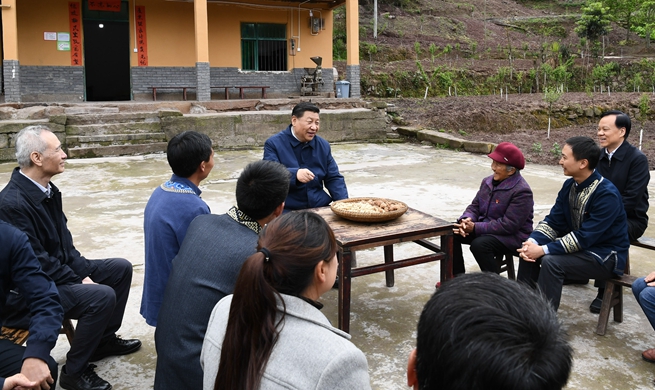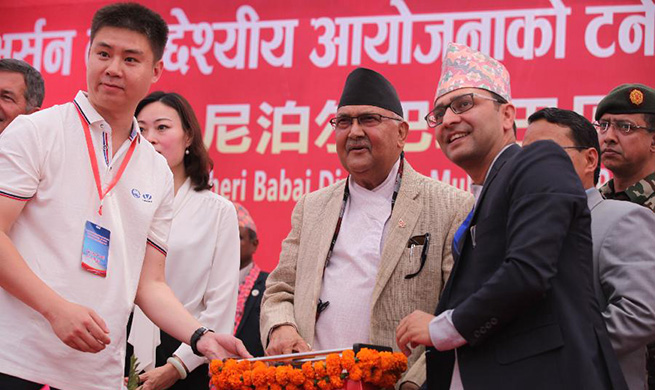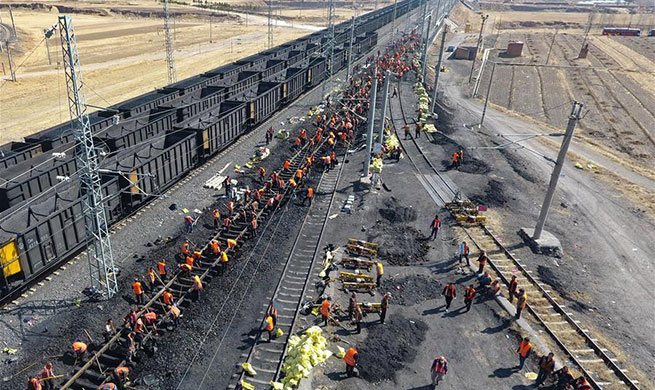by Wang Xu, Annie Cheung, Hong Xuehua
HONG KONG, April 17 (Xinhua) -- New deputy chief of China's national anti-drug commission Tsang Wai Hung promised to launch a drug control campaign with Chinese characteristics.
"You will know why China has zero tolerance for drug offenses if you know our history well," Tsang, the former head of the Hong Kong Police Force, said in a recent interview with Xinhua.
With rich experience in handling with drug offenses, Tsang was recently appointed as the deputy director of China National Narcotic Control Committee. He became the second person from the Hong Kong Special Administrative Region (SAR) to hold a senior vice-ministerial position in the Chinese government.
"Our people had been greatly harmed by drugs in the past. It was a painful experience," Tsang said, noting that this year marks the 180th anniversary of Lin Zexu destroying opium at Humen in south China's Guangdong province in 1839.
Lin was a Qing Dynasty (1644-1911) official, who led the fight against opium smuggling. He ordered the destruction of more than 1,000 tons of smuggled opium confiscated from British dealers at Humen.
Tsang, 61, had served the police force for 38 years before he retired in 2015 from the top post -- Commissioner of Police. In the 1980s, he mainly engaged in criminal investigations and took up one of the most dangerous tasks which was fighting against drug trafficking.
"At that time, Hong Kong was plagued with drug offenses when tens of thousands of drug addicts were recorded," Tsang recalled, adding that most drug dealers in Hong Kong belonged to transnational criminal groups.
"Law and order in Hong Kong was poor and we dealt with several serious violent cases every year," Tsang said.
Tsang described the fight against drugs as an "extremely hard yet satisfying" mission. Thanks to joint efforts of different circles in the society, drug offenses dropped substantially with law and order largely improved by the time he retired.
In 2015, less than 9,000 drug abusers in Hong Kong were registered and the number of criminal cases continued to decline. Hong Kong is now ranked as one of the safest places in the world, Tsang said with pride.
Talking about his responsibilities in the new position, Tsang agreed that the Chinese government should fight against drugs with Chinese characteristics.
With regard to the current situation of drug control in China, Tsang said it was rather grave.
According to National Narcotics Control Commission, there were 2.55 million drug abusers nationwide by the end of 2017. Although the ratio was relatively low, Tsang said that drug offenses were a pressing matter to be solved immediately.
"The problem of drug abuse will lead to serious consequences as China is a big country with a large population," he said.
China has seen a rapid economic development in past decades with increasing exchanges between China and the rest of the world, which has put more pressure on drug control.
The production of new drugs also poses a serious challenge, which, Tsang said, has become a new trend of drug cases and should not be neglected.
"We have the obligation and ability to join hands with our neighboring countries to fight drugs," Tsang said, emphasizing the importance of international collaboration in drug control.
Tsang said Hong Kong has achieved results in combating drugs and the key was source control, which could be achieved by pushing ahead with international collaboration.
Social cooperation was another important factor, he said, adding that the Action Committee Against Narcotics in Hong Kong includes community workers, teachers, doctors and businessmen who can help mobilize people from all walks of life to enhance awareness of drug control.
Tsang, however, agreed that the situation of the mainland is not the same as that of the Hong Kong SAR, so he would suggest the mainland not to simply copy from Hong Kong.
"The mainland has been doing quite well in some aspects in regard of drug control and we can further enhance them," he said.




